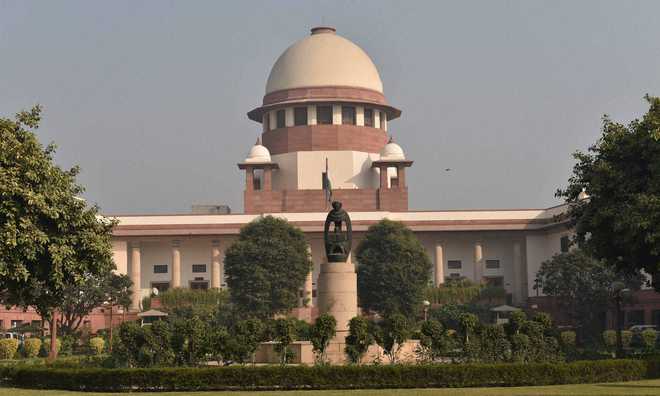Three women move SC for unrestricted right to abortion; SC issues notice to Centre
Tribune News Service
New Delhi, July 15
The Supreme Court on Monday issued notice to the Centre on a petition challenging the validity of certain provisions of the Medical Termination of Pregnancy (MTP) Act, which disallow abortion beyond certain period of time.
Petitioners Swati Agarwal, Garima Sekseria and Prachi Vats contended that the provisions that allow abortion only to save the woman’s life or in case of abnormal foetus violated women’s right to health, “free reproductive choice” and “privacy”.
A Bench headed by Chief Justice of India Ranjan Gogoi asked the Centre to respond to the petition that wanted sections 3(2) (a) and 3(2) (b) of the MTP Act to be declared as “void and unconstitutional” being violation of the petitioners’ fundamental rights.
Section 3(2) (a) of the Act provided that for pregnancies not exceeding 12 weeks, a medical practitioner need to state that continuance of pregnancy would involve a risk to the woman’s life or cause grave injury to her physical or mental health or there is substantial risk to the child, if born, as it would suffer from serious physical or mental health abnormalities.
They said section 3(2) (b) of the MTP Act mandated that the opinion of a registered medical practitioner to terminate pregnancy would be needed and the abortion after 20 weeks can only be allowed on the ground of risk to life of a pregnant woman and it violated the women’s right to health, reproductive choice and privacy.
“Restricting the permissible length of pregnancy to 20 weeks is excessive and harsh. With the advent of science and technology diagnosis of fetal abnormalities is possible at subsequent stages and with the advancement of science and technology it has become possible to terminate pregnancy even at later stages,” they said.
“The state cannot compel a woman to continue a pregnancy against her will when continuance of pregnancy will entail physical, mental and socio-economic consequences which far outweigh the consequences that ensue as a result of termination of pregnancy,” they submitted.
“The provision imposed severe restriction on the exercise of the reproductive choice of the woman by providing for a precondition of an opinion by the medical practitioner about there being a risk to the life of the lady or of grave physical or mental injury or risk of serious fetal abnormalities if the pregnancy is continued.
“The restriction puts an undue burden on the exercise of free reproductive choice and renders it meaningless. This provision in substance makes right to terminate pregnancy an exception which is otherwise recognized as an important facet of right to life, human dignity, autonomy and self determination,” it said.










